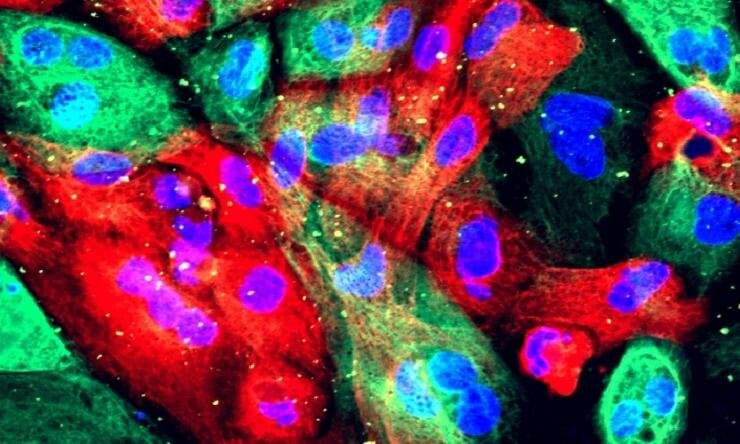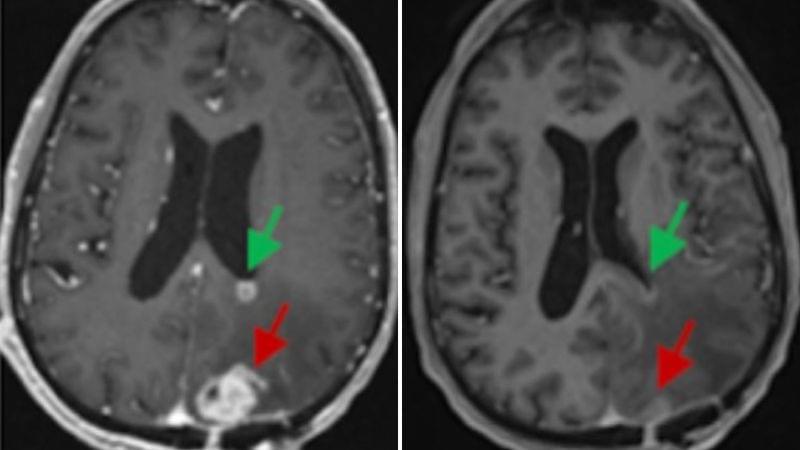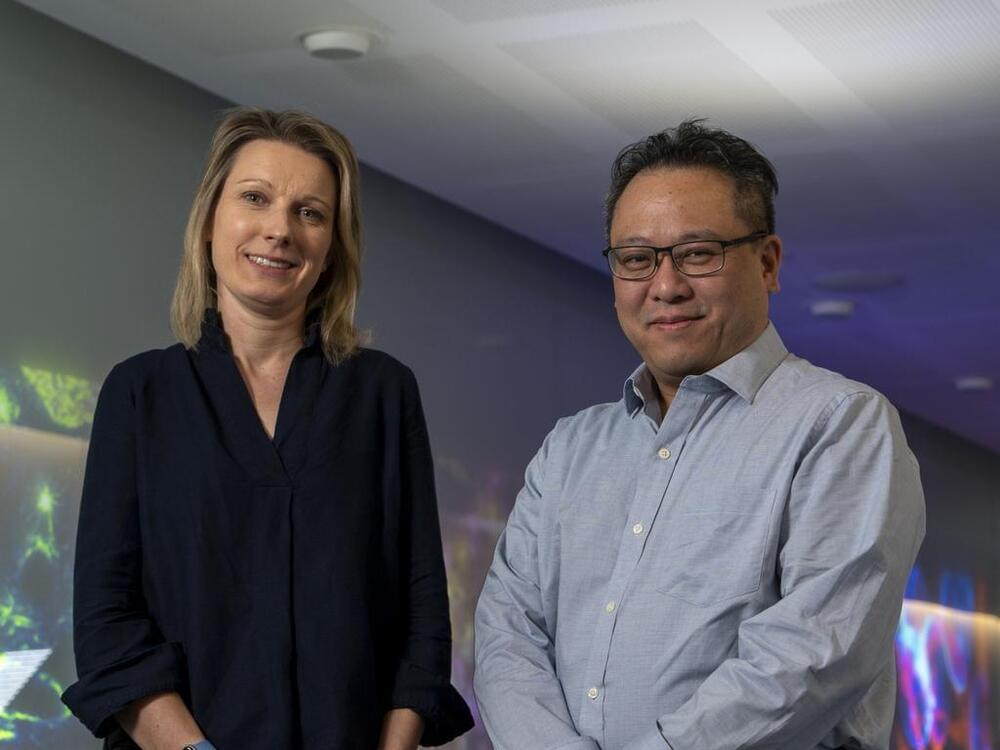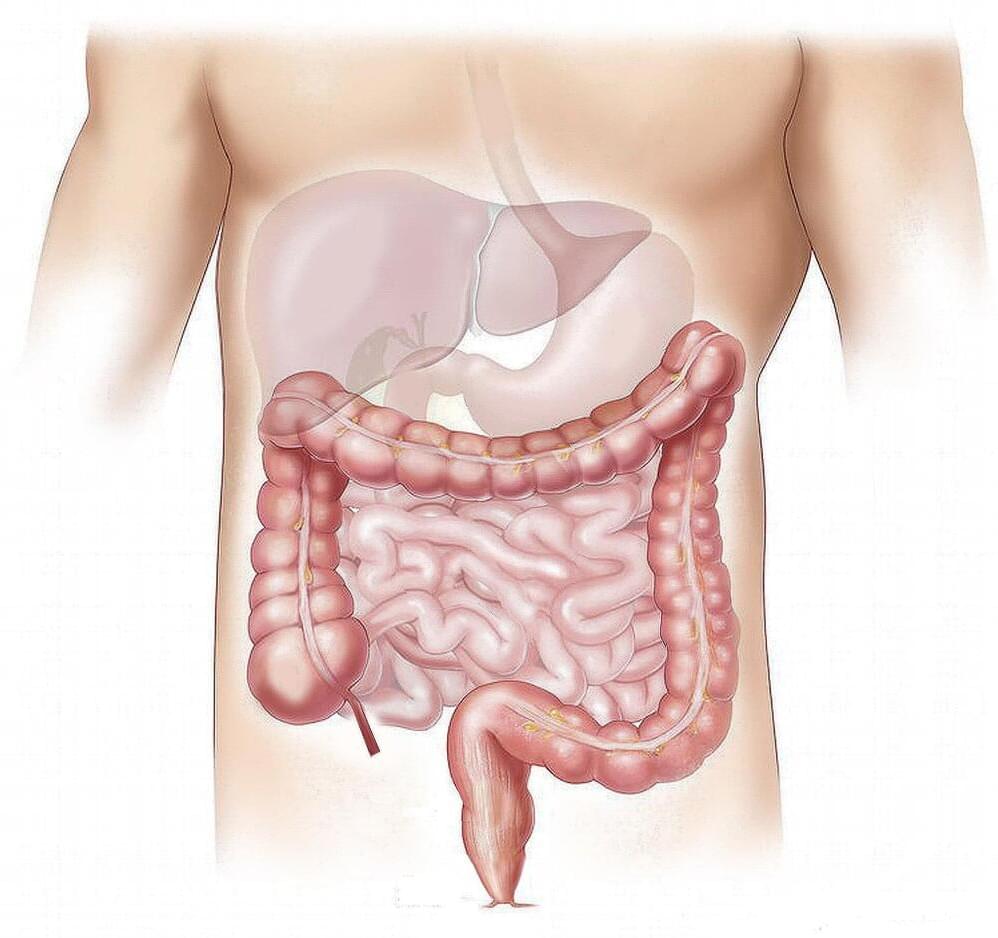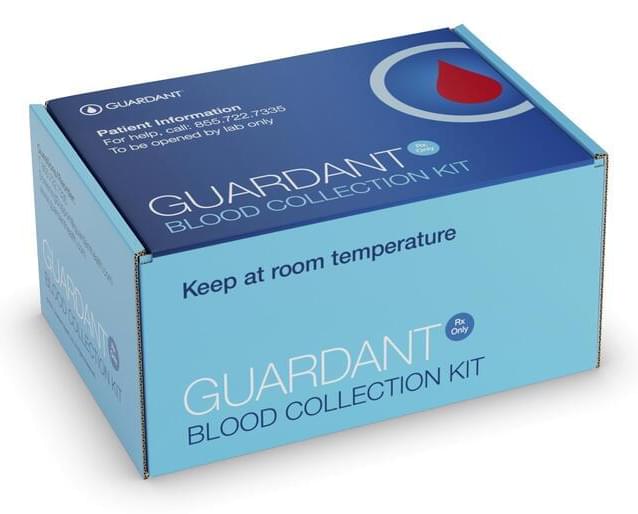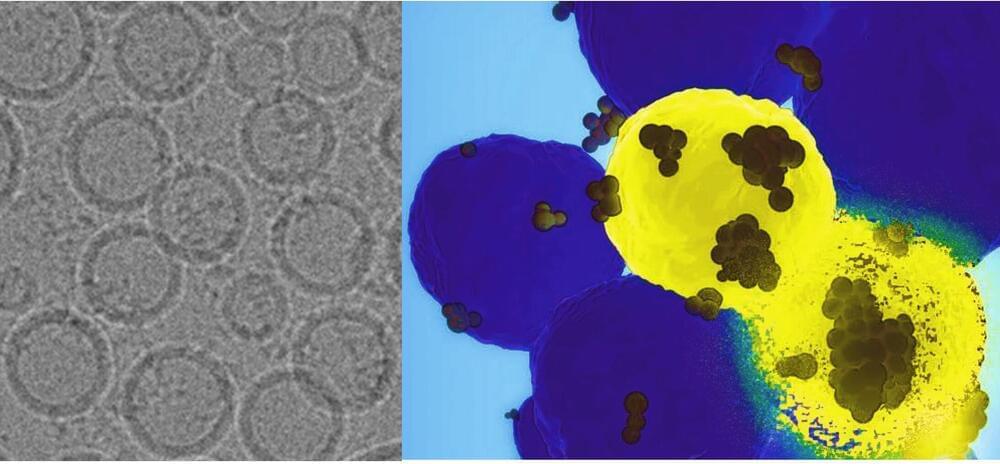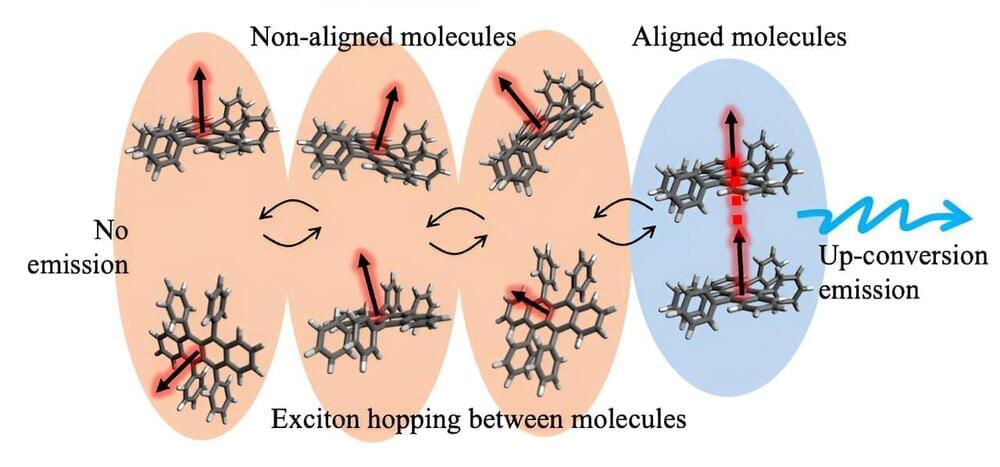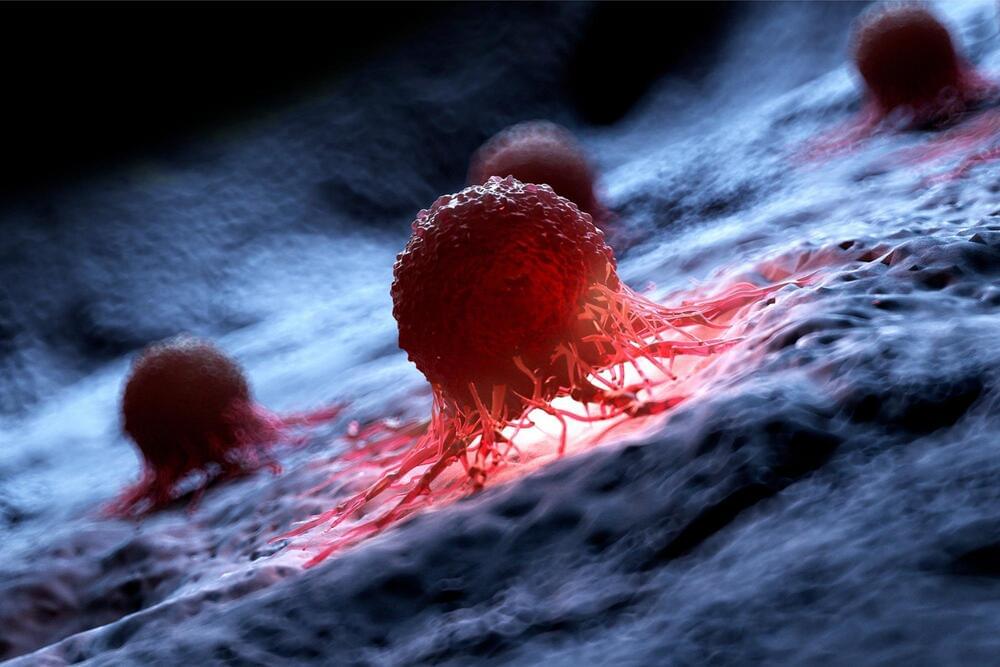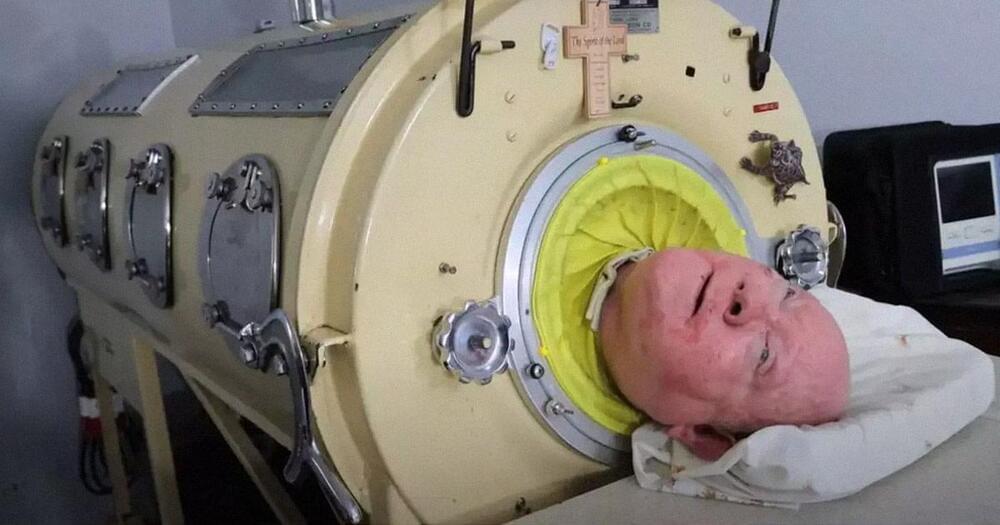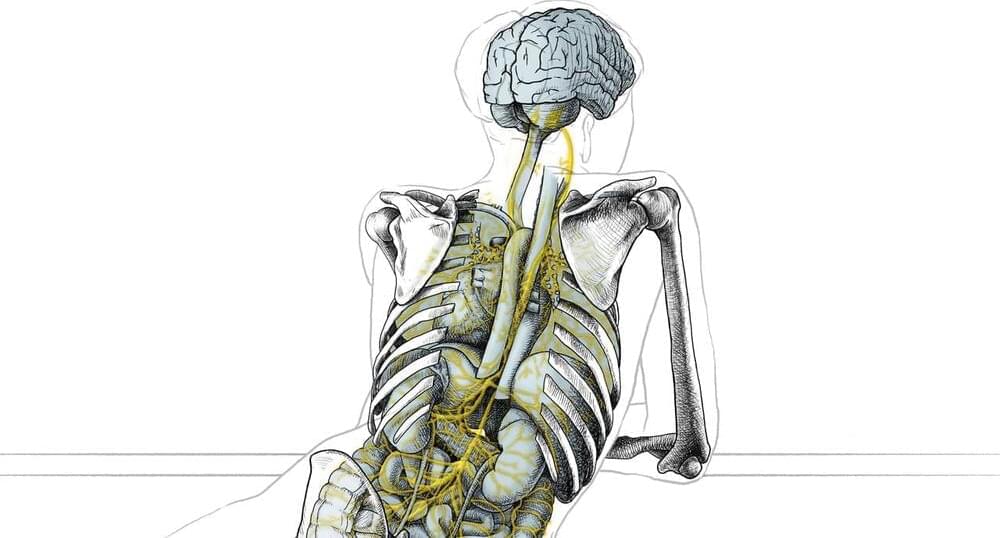To combine two low-energy photons into one high-energy photon efficiently, the energy must be able to hop freely, but not too quickly, between randomly oriented molecules of a solid. This Kobe University discovery provides a much-needed design guideline for developing materials for more efficient PV cells, displays, or even anti-cancer therapies.
Light of different colors has different energies and is therefore useful for very different things. For the development of more efficient PV cells, OLED displays, or anti-cancer therapies, it is desirable to be able to upcycle two low-energy photons into a high-energy photon, and many researchers worldwide are working on materials for this up-conversion.
During this process, light is absorbed by the material, and its energy is handed around among the material’s molecules as a so-called “triplet exciton.” However, it was unclear what allows two triplet excitons to efficiently combine their energies into a different excited state of a single molecule that then emits a high-energy photon, and this knowledge gap has been a serious bottleneck in the development of such materials.
